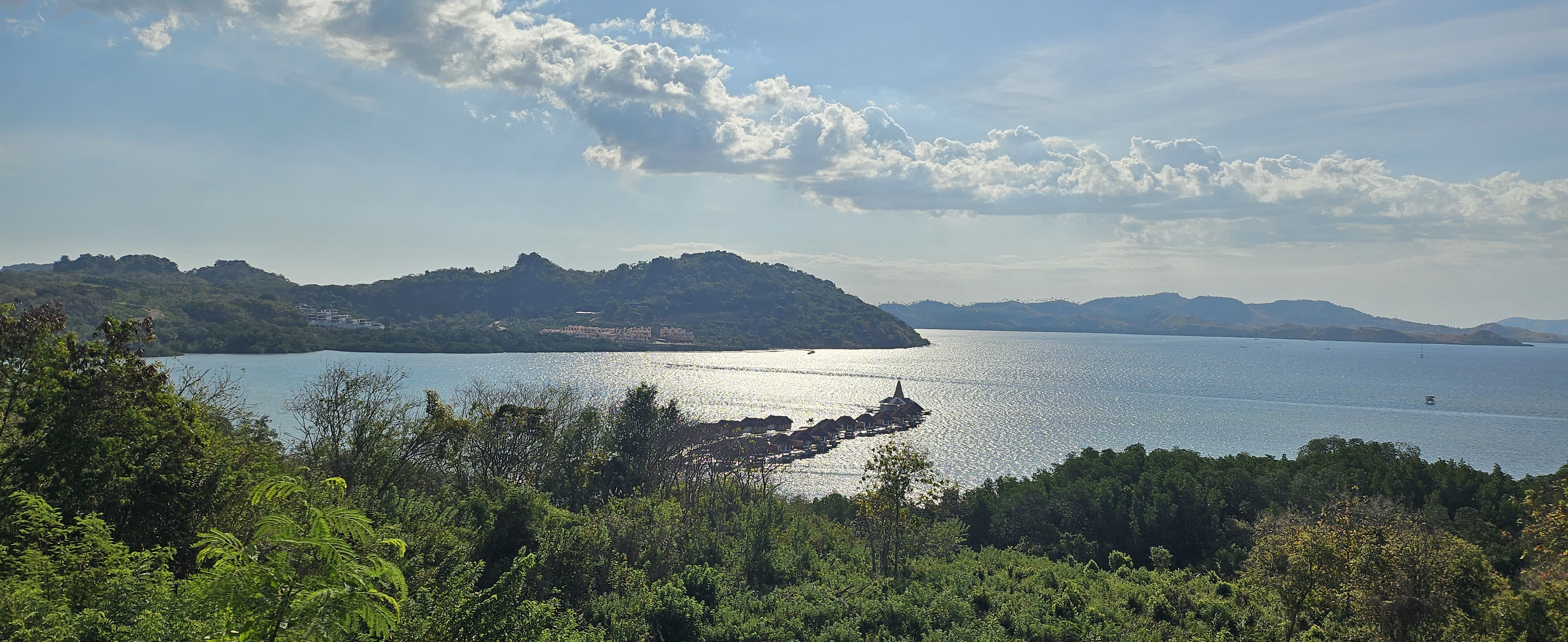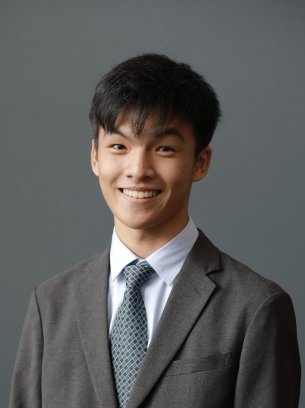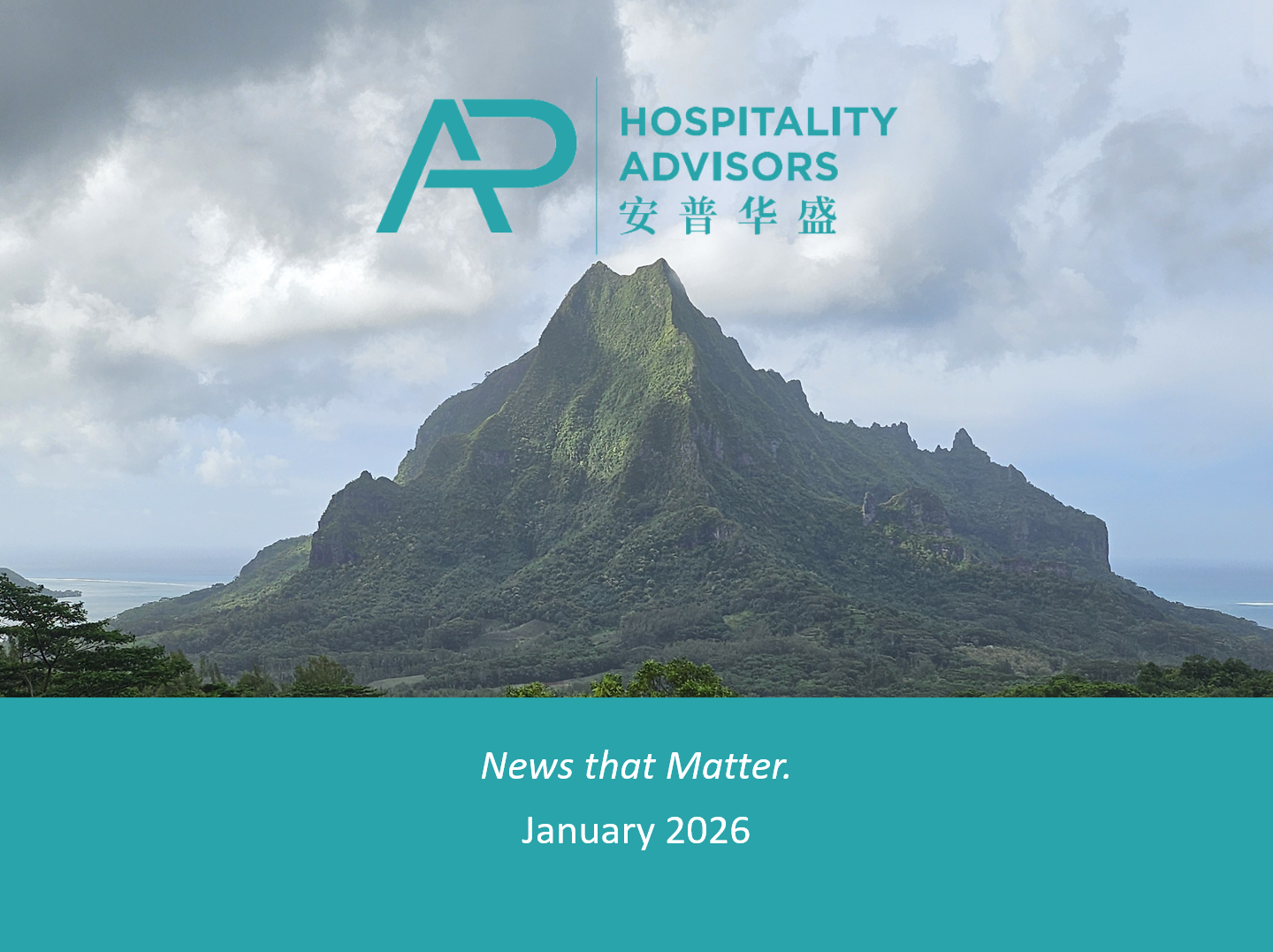AP COVID Hospitality Bulletin Asia Pacific - February 2021

As we have been battling against COVID-19 for the past year, we are finally seeing the light at the end of the tunnel where vaccinations are getting approved and distributed across the world in achieving herd immunity. But, what comes next?
With the pressure for vaccinated people to ease lockdowns and move around freely, countries are in discussion for "vaccine passports". Will we finally be safe to travel soon?
The AP take:
Travel will not resume in a significant way in the region in the first two quarters of the year. There may be certain countries that open up travel corridors where vaccination levels in the population have attained ‘herd immunity’ levels. However, any requirement for quarantine at either end of the journey or waiting time associated with testing on arrival will deter larger numbers of travelers. Against popular believe, we do not foresee the Olympic Games in Tokyo to be held come summer in a way that would resemble previous events along with the ramifications for the industry. The third quarter could thus see some selective recovery and (international) demand for hotels. That being said, the risk for new, more dangerous strains to emerge remains. Any localized outbreaks or related need to re-vaccinate the population would delay the above-mentioned recovery cycle. Yes, there is pent-up demand. However, the constraints outlined above will weigh on demand more heavily in APAC than in North America or Europe. We thus remain cautious on a any significant recovery in APAC for 2021 which will hit small hotel owners particularly hard. A potential recovery would likely pick up pace in 2022 and 2023. Assume there is a return to a pre-COVID normal, this may not arrive until 2024 for the vast majority of markets in the region.
The information and opinion expressed here are made by AP. AP accepts no liability for loss arising from the use of opinions and information presented in this bulletin.
A closer look at key countries:
Australia
- Australia will begin receiving Pfizer's vaccine starting February and is aiming to complete inoculations by October. Australia secured 140 million vaccines, equating to one of the highest dosing rates per capita in the world.
- On January 25, New Zealand confirmed its first case of COVID-19 in the community in months, the Australia-New Zealand travel bubble was suspended for 6 days and Australia ordered all those who had arrived since January 14 to self-isolate and be tested. The suspension of the New Zealand travel bubble has been lifted on January 31, allowing quarantine-free travel to resume.
China
- China is imposing new COVID restrictions near Beijing after an escalation of outbreaks. Due to tighter restrictions, on-the-book airline bookings as of January 19 for the busy Chinese New Year travel period have plummeted 74% compared to the same period last year.
- In the race for vaccines, China has made advances with Beijing-based firms Sinovac and Sinopharm which are in their final phase of clinical trials abroad. Sinovac has been approved for emergency use in high-risk groups in China since July. However, efficacy discrepancies from late-stage trials in Brazil, Turkey and Indonesia have stirred mistrust; an explanation has yet to be released to the pub
Hong Kong SAR
- More than 150 residential buildings in a Kowloon district were under a 48-hour lockdown with to contain a worsening outbreak in neighborhoods with an ageing population and many subdivided flats. This affected approximately 7,000 residents who must participate in COVID testing, in which 13 were tested positive.
- Hong Kong has approved the use of the Germany-based BioNTech vaccines, with the first batch arriving in late February.
Japan
- The Japan government announced the second state of emergency on January 7 as cases skyrocketed across the country. However, many doubt the success in containing the virus because the state of emergency in Japan holds little legal authority; it relies on voluntarily cooperation rather than mandatory lockdowns and penalties. Additionally, Japan has yet to approve any vaccines.
- The suspension of the ‘Go To Travel’ campaign due to serious outbreaks has further snowballed the financial burden on Japan’s ski resorts this year.
- As a result of the prolonged pandemic and second state of emergency, The government has introduced measures such as housing security and employment subsidies to help citizens who are struggling financially.
Singapore
- In January, Singapore has confirmed three cases of the COVID-19 variant identified in the UK. This strain is evidently more contagious and the younger generation is more susceptible to it.
- Given the effectiveness of TraceTogether, a contact tracing system implemented by the government, the number of unlinked cases in the community has shown decreases week over week. Approximately 80% of the population take part in the program which has helped reduce tracing time by half.
- The government is aiming to station one community vaccination center in every town by the end of March. Each center has the daily capacity of 2,000 vaccinations. The vaccination scheme kickstarted on January 22 for senior residents. Singapore plans to arrange sufficient vaccines for all citizens by the third quarter of 2021.
South Korea
- South Korea has repeatedly seen superspreading infection clusters from religious groups at churches last year in its southeastern region, to now a missionary training school in Daejeon with over 130 confirmed cases.
- Korea's daily COVID case tally has consistently recorded above 400 cases, with a majority in the metropolitan area in Seoul. The government extended the Level 2.5 social distancing scheme in the greater Seoul area, which includes a ban on private gatherings of more than four people and the prohibition of business operations after 9 p.m.
- South Korea announced first batch of Pfizer vaccines for 50,000 people should arrive before the Lunar New Year holidays. Ideally the process will vaccinate up to 70% of the population of 52 million by September.
Thailand
- Thailand is caught in a hot new wave with the number of total cases more than tripling in the past 30 days. However, in helping to stimulate the local economy as Chinese New Year approaches, the famous leisure destination Phuket has announced to ease quarantine restrictions for travelers from Bangkok despite its high infection rate.
- Thai-based Siam Bioscience will be locally producing AstraZeneca vaccines starting in May. The Thai government aims to inoculate 50% of its population before the end of 2021.
- The Tourism Authority is currently proposing "vaccine passports" with industry partners in airlines and tourism operators to sell various all-inclusive packages that might include health insurance and vaccine certification. However, it faces pushbacks on mandatory quarantine and cross-country implementation.
The Philippines
- The Philippines experienced the world's longest lockdown in Manila for 6 months in 2020 and now continues to face local transmissions of UK variant.
- The Philippines' Food and Drug Administration (FDA) has authorized the emergency use of the US-based Pfizer's vaccine, the first to be approved in the Southeast Asian country, which has one of the highest numbers of coronavirus cases in Asia. The government aims to begin immunization in February, hoping to vaccinate two-thirds of its population in 2021.
- However, distrust among public has grown over the scandal of illegal and unapproved vaccine distribution in the black market among Chinese workers in Philippines, procuring shots before healthcare workers.
Catch up on news that matter!
- The Tokyo Olympic Games are still happening on July 23, 2021, although 80% of Japanese disapprove of the Games to be hosted according to a recent opinion poll. (Skift)
- Thailand's Minor Hotels Group has signed an agreement with Funyard Hotels & Resorts covering the expansion of Minor's brands in China. This will bring a larger brand presence of Anantara, Avani , Oaks, Elewana, Tivoli and NH brands in the country. (Hospitality Net)
- Accor teams up with Faena to further tap into the trendy lifestyle hotel sector. Dubai is slated to be the first international destination. Designed by Argentine developer Alan Farna, the brand currently operates 3 hotels in Buenos Aires and Miami Beach, of which each location boasts unique architecture, modern art, holistic wellness, and immersive culinary concept. (Luxury Travel Advisor)
- Royal Caribbean Group has announced the sale of its Azamara line to private equity firm Sycamore Partners for $201 million, in order to focus on the expansion of its other brands amidst its struggle to survive during the pandemic. (Skift)
- The fledgling HK-based Greater Bay Airlines (GBA) has formally applied for rights to operate more than 100 routes around the region that were once operated by the deceased regional carrier Cathay Dragon. 50% of the routes in the bid are from Hong Kong to China, and the rest to Japan, Taiwan, Korea, and Southeast Asia. GBA plans to operate up to 30 aircrafts, employing between 2,500 and 3,000 people by 2025. (SCMP)








